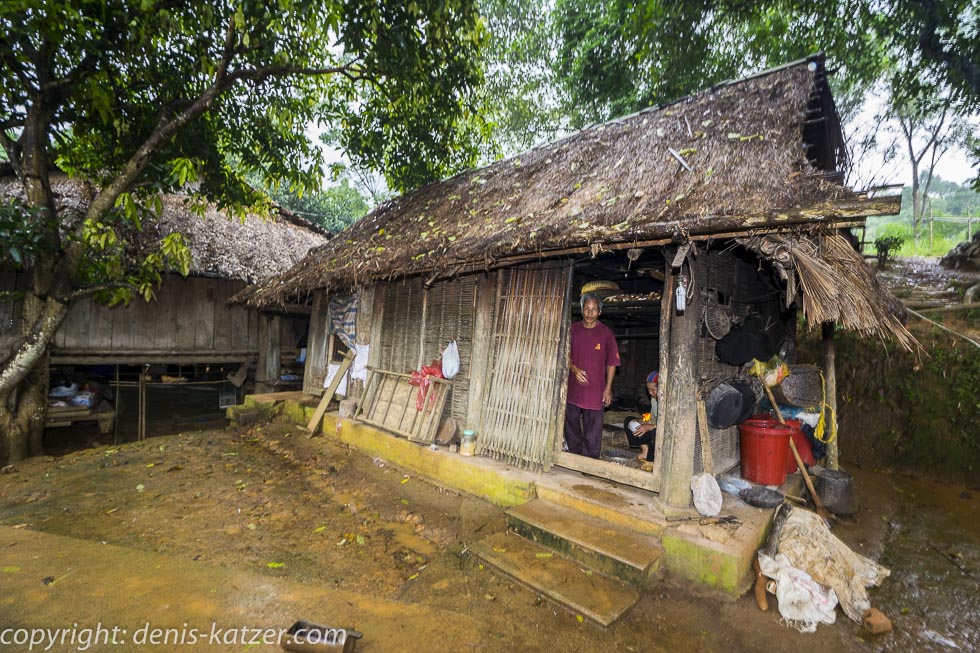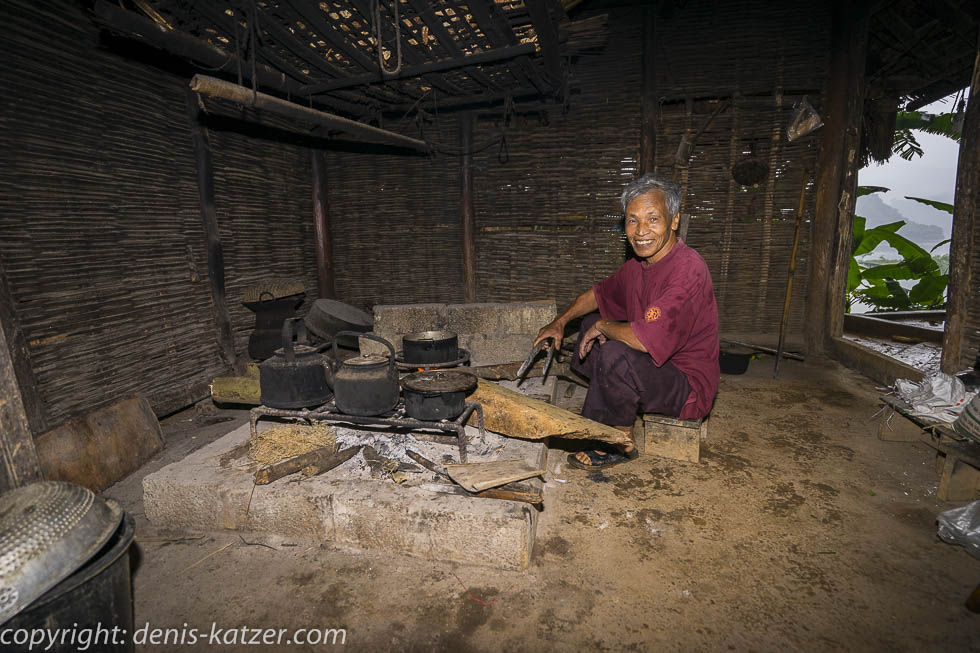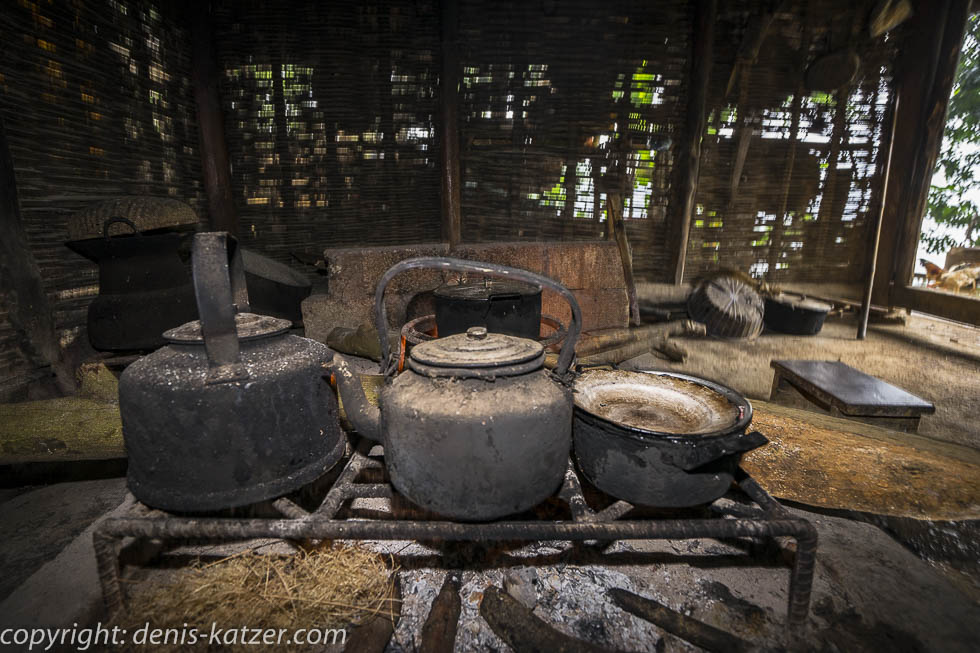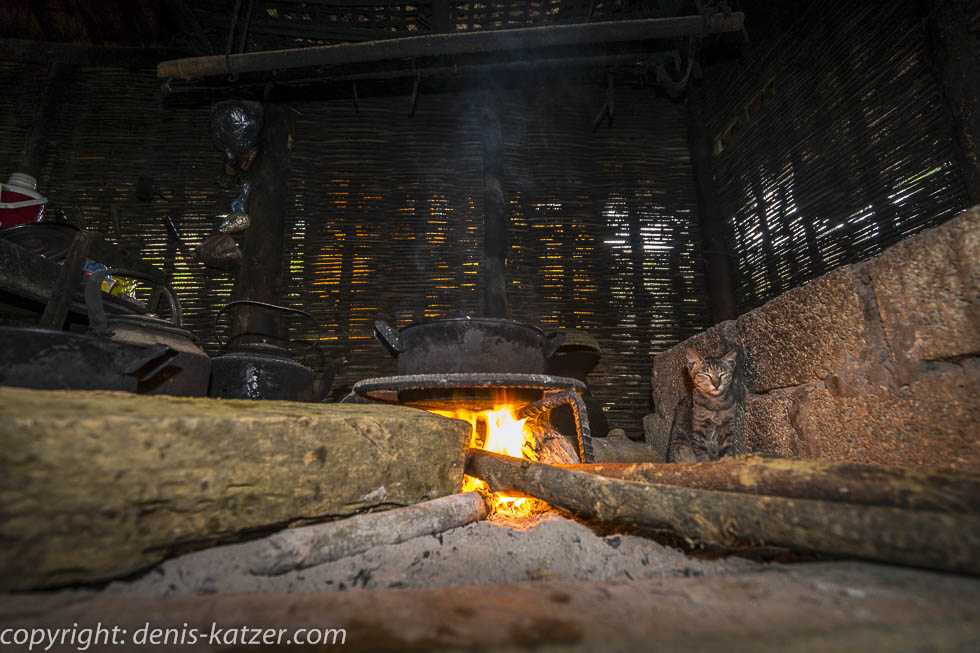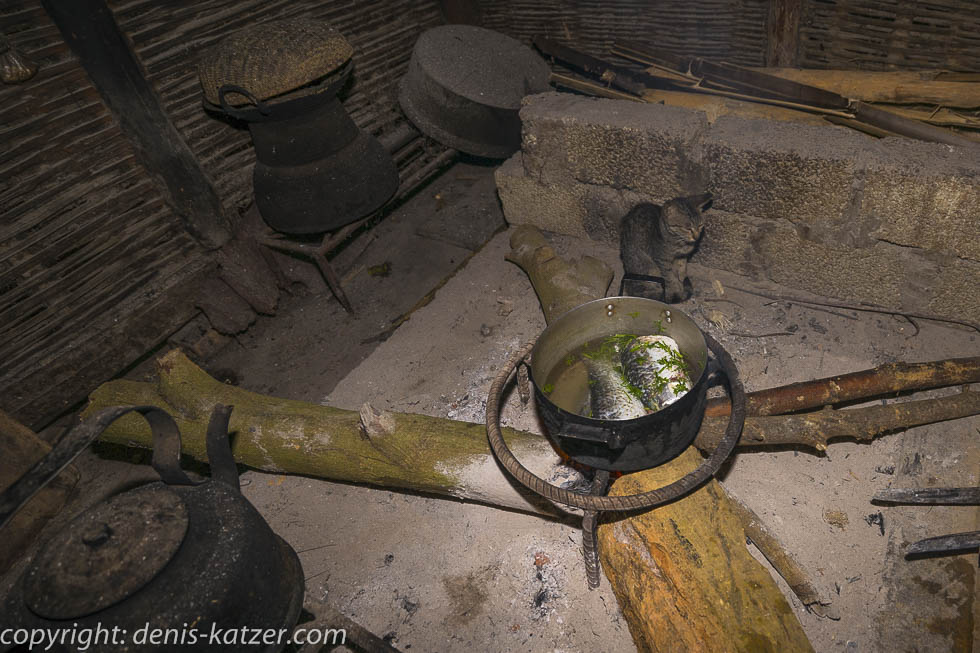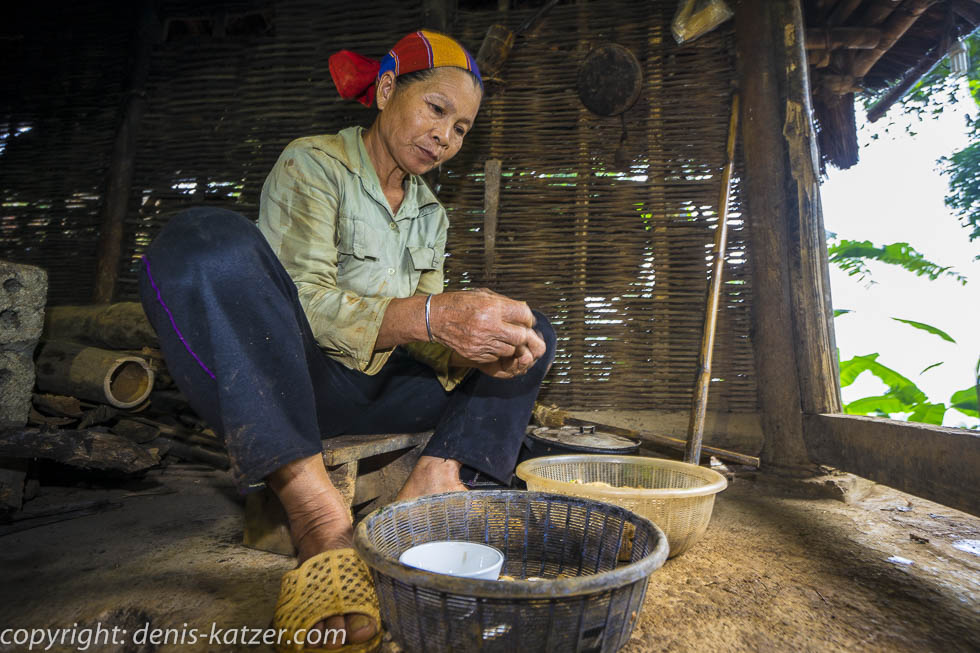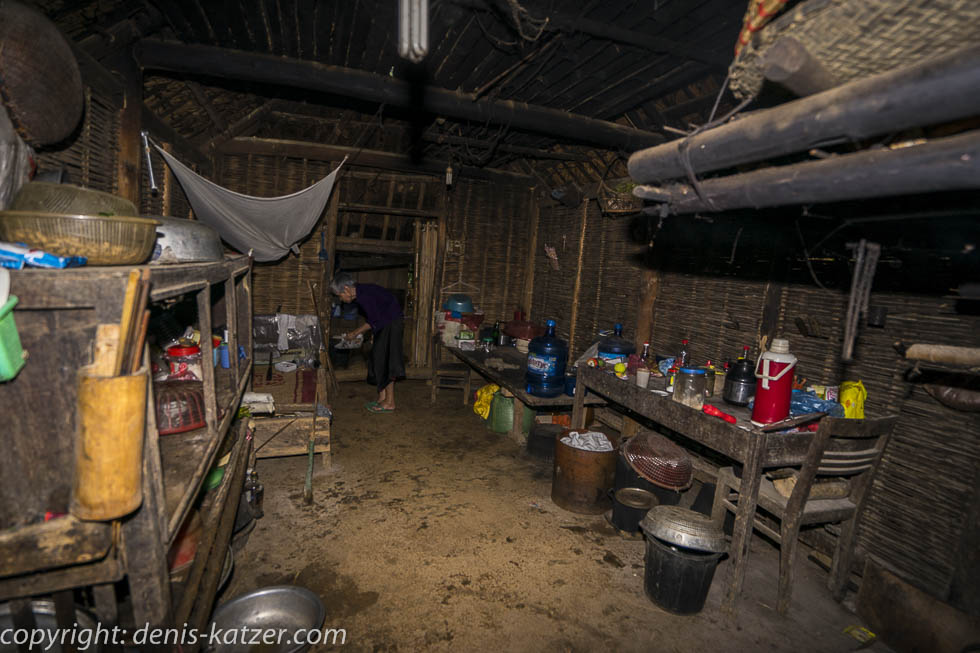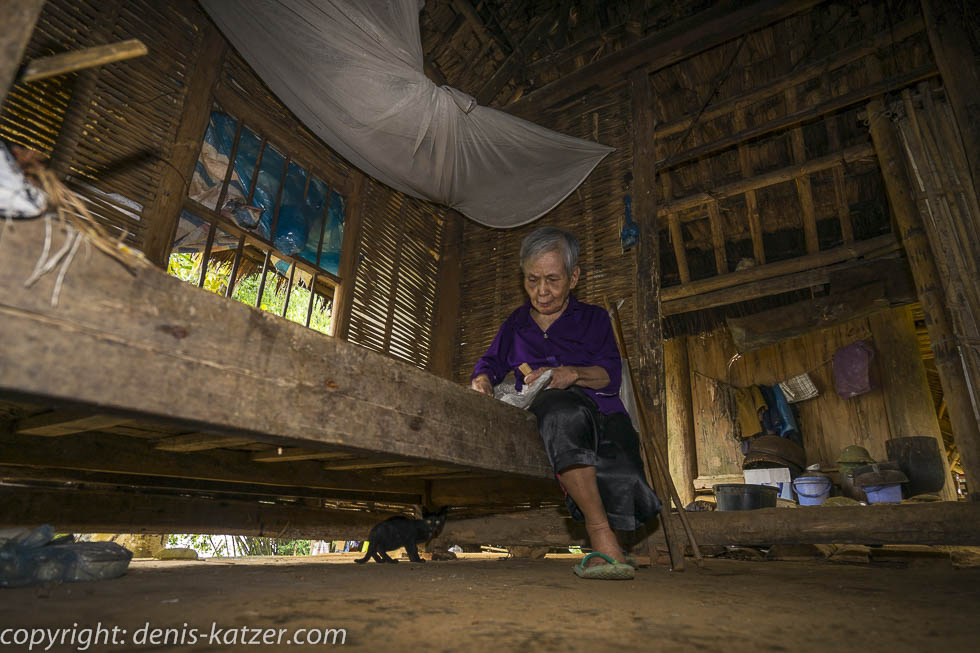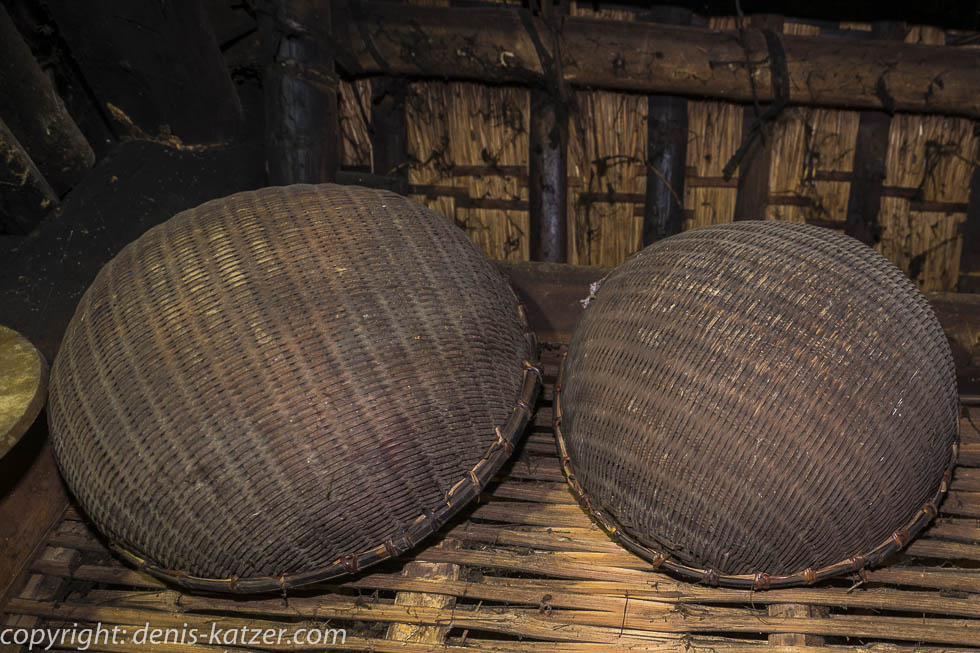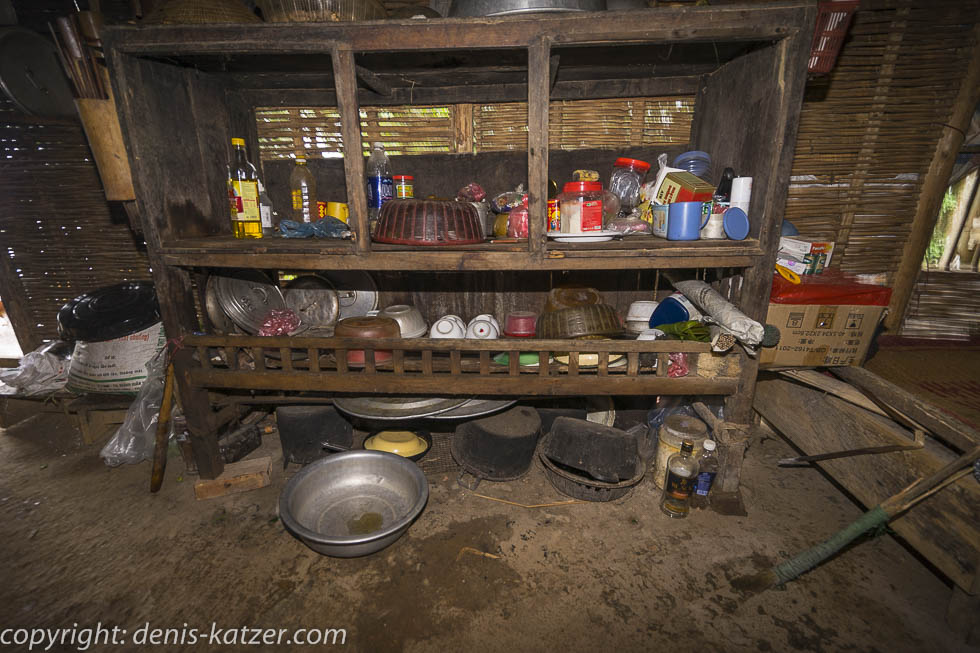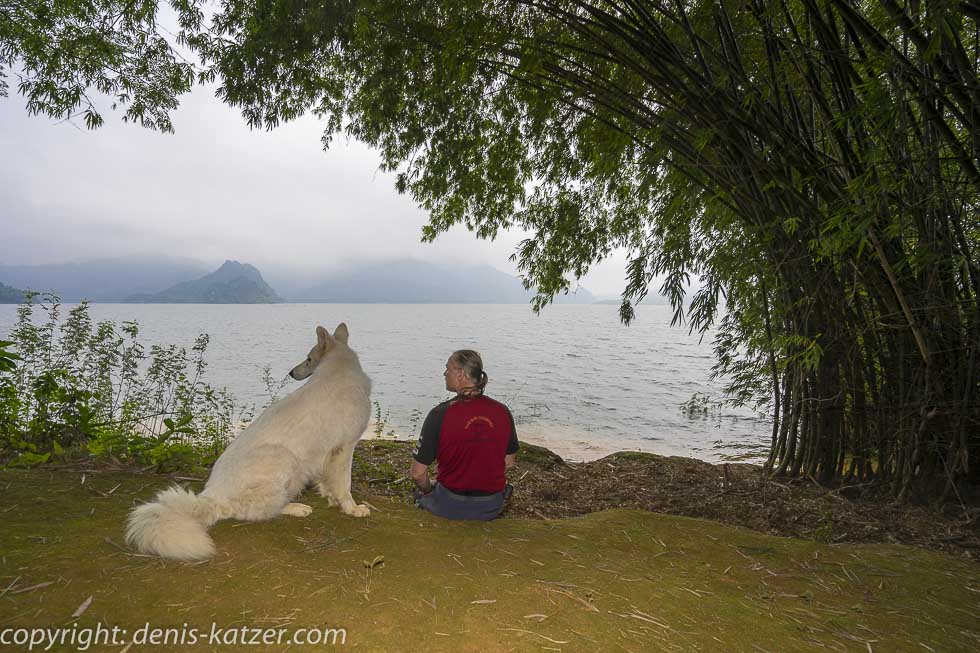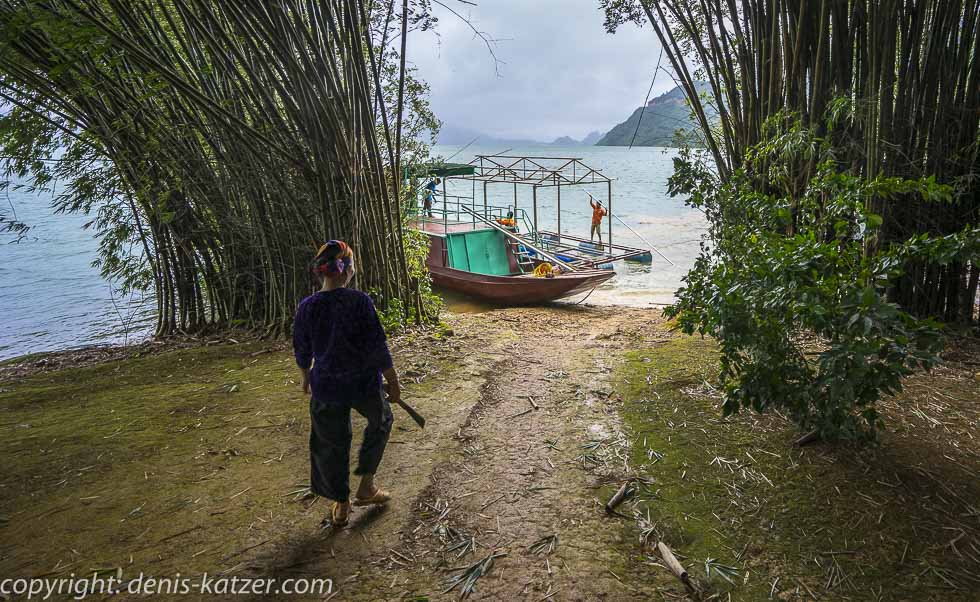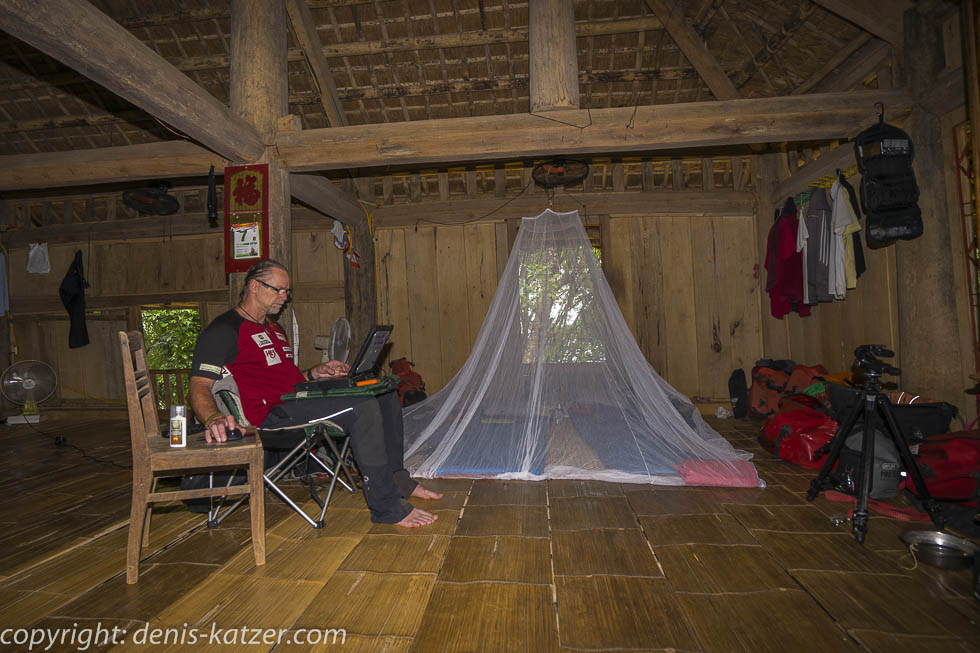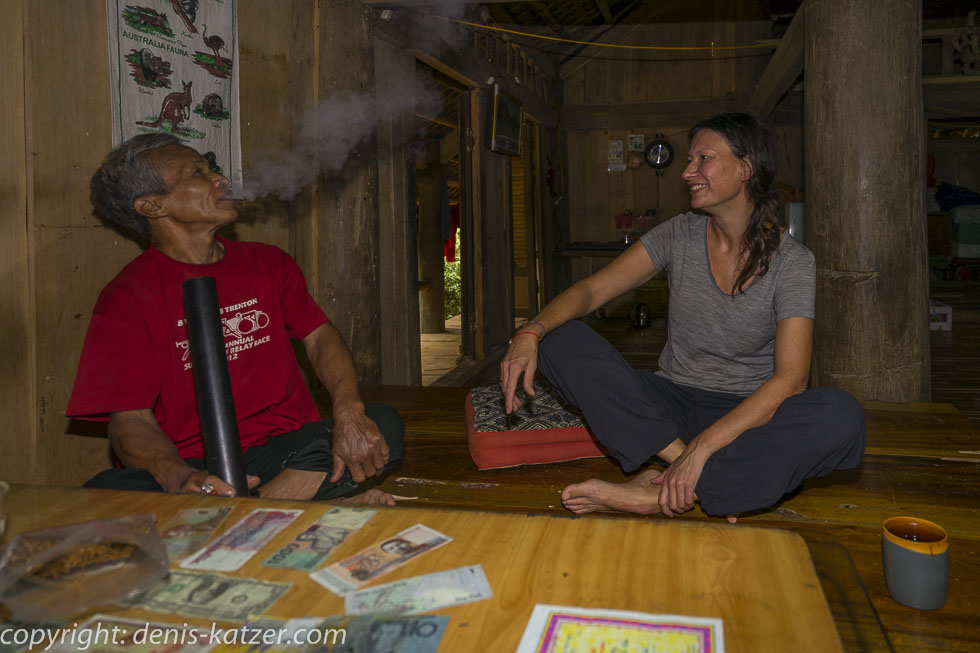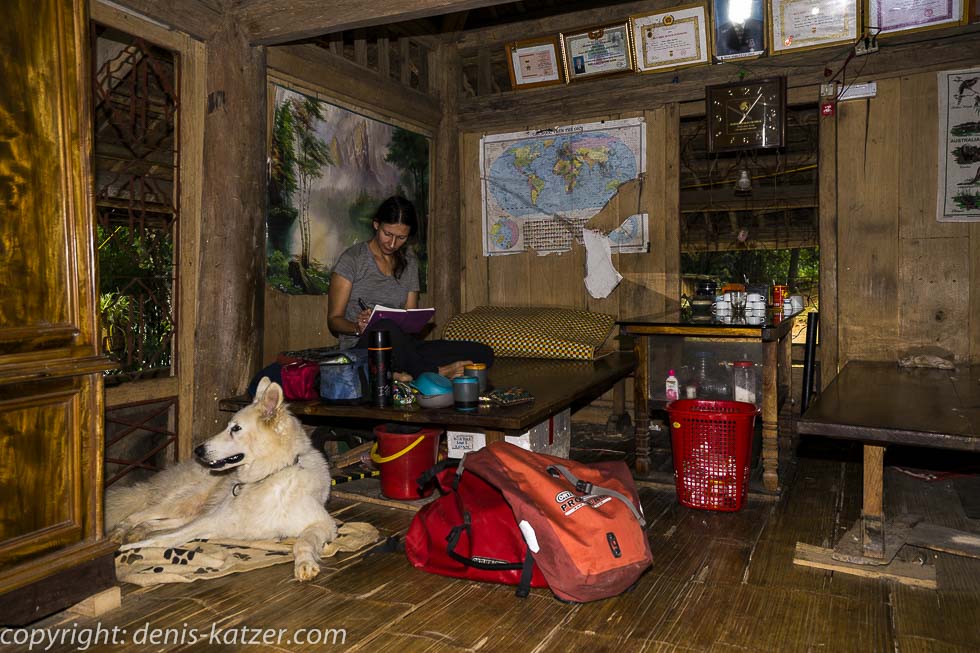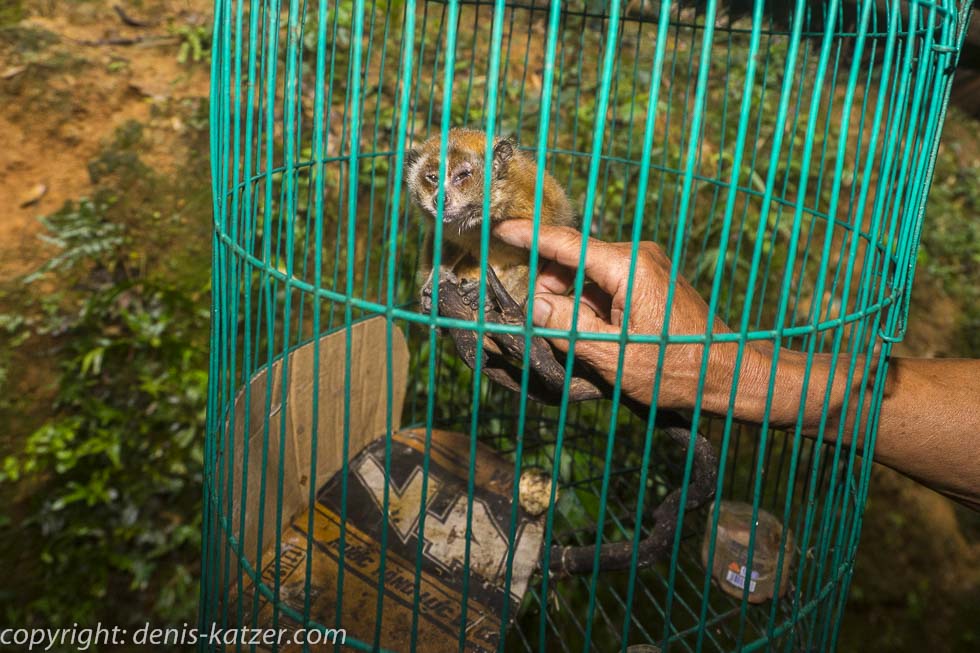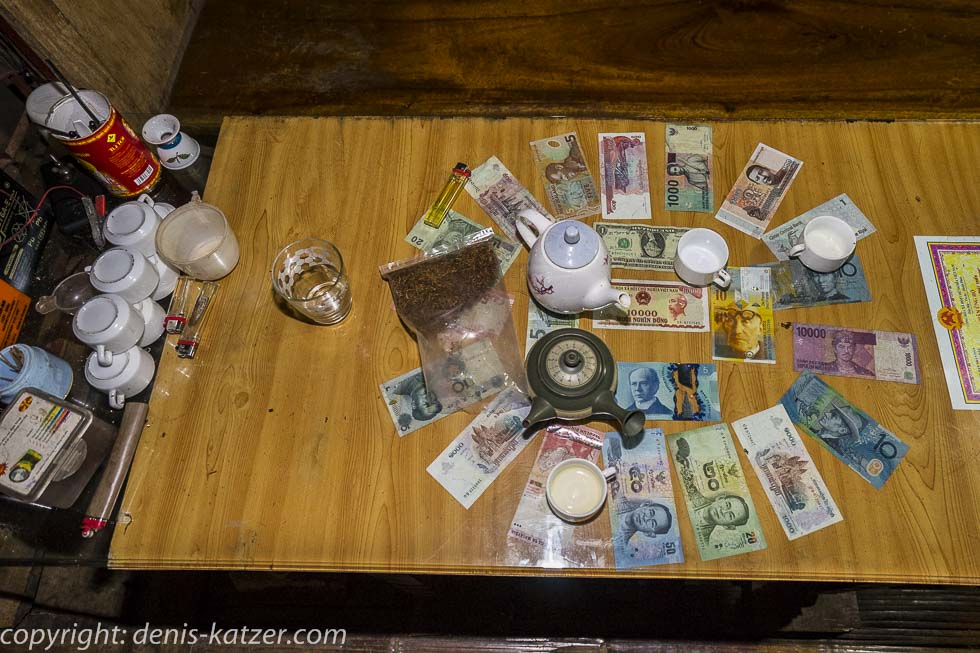
With the war veteran
N 20°45'16.1'' E 105°04'30.7''
Date:
08.11.2016 until 09.11.2016
Day: 501 – 502
Country:
Vietnam
Province:
Hòa Bình
Location:
Homestay by the lake
Latitude N:
20°45’16.1”
Longitude E:
105°04’30.7”
Daily kilometers:
19 km
Total kilometers:
20,366 km
As the crow flies:
11 km
Average speed:
16.9 km
Maximum speed:
32.8 km/h
Travel time:
1:06 hrs.
Soil condition:
Asphalt / gravel
Maximum height:
270 m
Total altitude meters:
54.941 m
Altitude meters for the day:
280 m
Sunrise:
06:05 a.m.
Sunset:
5:21 pm
Temperature day max:
16°C
Departure:
10:00 a.m.
Arrival time:
12:00 p.m.
(Photos of the diary entry can be found at the end of the text).
Although it is still pitch dark, the old couple Hung and Hoe start their day. They rustle through the stilt house in the diffuse light of an energy-saving bulb. We stay in bed for a while and listen to the rain. “Shall we continue?” asks Tanja. “Doesn’t make sense because of the risk of landslides. We should at least stay until the heavy rain has calmed down,” I reply. Shivering, I pull the light sleeping bag over my body. The foothills of the typhoon have caused temperatures to drop to 16 degrees. Combined with the humid air, it is quite uncomfortable in the windowless house.
The thick cloud cover also eats up a lot of light in the morning, so it remains gloomy in the house. Hung and Hoe save electricity and switch off the energy bulb themselves. Our modest breakfast of green vegetables and hard-boiled eggs goes well with the sparse light. “Do you want fish for dinner?” asks Hung. “Fresh fish from the lake?” I want to know. “Yes, from the lake,” we understand. “One kilogram of fish costs 150,000 dong” (€6.29). “Fish would be great,” I say, which is why Hung gets on his moped in this bad weather and disappears. 1 ½ hours later, he is back. He takes off his holey, cheap plastic overcoat and is soaking wet in many places on his body. Slightly battered, he carries the fish into the kitchen hut next to the stilt house. I follow him to see where our dinner is being prepared. As I enter the crooked hut made of rough bast and bamboo, I feel like I’ve stepped back in time a few hundred years. Acrid smoke rises from the fireplace on the clay floor. In the ashes stands an iron stand with a pot blackened by soot hanging from it. Hung pushes a few branches into the small fire to keep it going. Only now do I see the cat, which has made itself comfortable in the cold ashes right next to the flickering flames to keep warm. While Hung supervises the pot and boils water, his wife Hoe squats on the doorstep and peels peanuts. Further inside, in the diffuse light of the little hut, there is a simple, hand-crafted, open shelf unit in which cooking utensils such as cups, pots, spices, oil and much more have found their home. Two frail wooden chairs and a table, on which there are even more things in the orderly chaos that are difficult to assign at first glance, huddle against the bast wall. Only now do I see the old woman, bent over, pushing something under the wooden bed on the opposite side. It’s Hoe’s older sister who lives in here. “It couldn’t have looked any different a thousand years ago, I think, and let my eyes wander over the raffia baskets dangling from the sooty ceiling. I give Hoe a friendly nod, leave the hut and walk with Ajaci to the nearby lakeshore. There is no doubt that the predicted typhoon is approaching. Ominous rain clouds shroud the mountains and creep across the lake. Fishermen use a boat to bring the welded frame of a floating house to safety. More and more raindrops fall on the bamboo roof above my head, forcing me to seek shelter in the house.
I spend the rest of the morning labeling the pictures and feeding them into the laptop. Tanja writes in her diary. Hung fills his water pipe from time to time and inhales a few strong puffs. A cockerel roars a late cock-a-doodle-doo as a violent gust of wind suddenly blows into the room. Dust flies up, scraps of paper are whirled around. Hung immediately leans his water pipe against the wooden wall, jumps up and closes all the shutters of the pane-less windows. It immediately becomes even darker. Although Hung is very frugal, he doesn’t leave us sitting in the dark and switches on one of the energy-saving light bulbs. Heavy showers rush down on the palm leaf canopy. Gusts shake it vigorously. The typhoon grips the small, old human dwelling with great force. The giant bamboo trees sway like drunken sailors. Loud, menacing creaking sounds penetrate our dwelling. Hung laughs. He has certainly experienced such storms many times and obviously survived. However, we are glad we didn’t set off. Out there, on the narrow mountain road, we wouldn’t be safe now.
In the evening, Hoe and Hung serve the fish. It is served with green vegetables and white rice. The porcelain bowls are dirty. We clean them with a yellowed paper napkin, take a spoonful of the lumpy, lukewarm rice and some of the tasteless green vegetables. The very first bite fills my mouth with hair-thin bones. “Don’t you have any bones?” I ask Tanja. “I’m fine,” she replies. As the fresh fish also tastes a little swampy, I make do with the white rice and tasteless green vegetables. Hung asks how we like it. I stick my thumb up so as not to offend him. “Do you want rice wine?” he asks. “Just a glass,” I reply, thinking of Jonny’s housewarming party. “Chúc sức khỏe!”, (To health) Hung shouts, raising his glass. “Chúc sức khỏe”, we reply. After the fourth schnapps, we turn down another Chúc sức khỏe. Tomorrow we still have a few kilometers of cycling ahead of us,” I make clear with sign language. “Ha, ha, ha,” he laughs, but then leaves us alone with more rice wine.
The floodgates are still open the next day. You would think you were breathing water instead of air. Outside the house, it’s as slippery as if you had ice under your shoes. The wet clay soil covered with fine moss and avalanches of earth and scree warn us not to continue…
If you would like to find out more about our adventures, you can find our books under this link.
The live coverage is supported by the companies Gesat GmbH: www.gesat.com and roda computer GmbH http://roda-computer.com/ The satellite telephone Explorer 300 from Gesat and the rugged notebook Pegasus RP9 from Roda are the pillars of the transmission. Pegasus RP9 from Roda are the pillars of the transmission.
